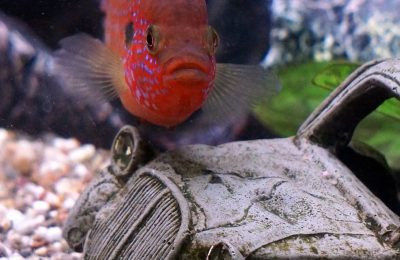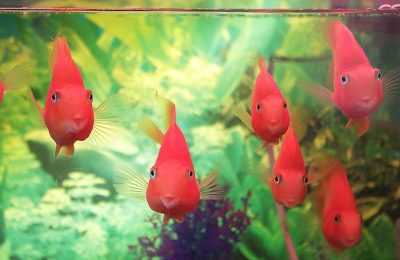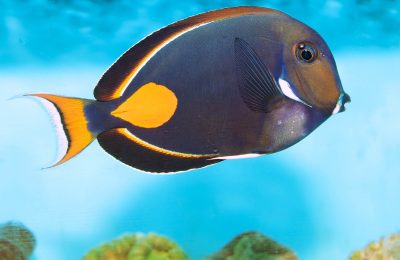illiam Wildgoose runs Midland Veterinary Practice in Leyton, in North London. He also happens to be an expert on pet fish ailments, and one of only three registered fish vets in London. CatDogFish caught up with him to chat all things aquatic to see what advice he has for all you fish-keepers out there!
Hi, William! How does a vet become a fish specialist?
It’s something that just developed; we didn’t have any training on treating pet fish at vet school, and it’s only after the first few years of practising you know what type of work will interest you. I found exotic pet medicine fascinating, and that lead me to branch into fish medicine. It’s more challenging because you’re dealing with an aquatic environment that’s crucial to the animal’s health.
How often do you deal with fish cases?
It’s not always a regular thing as we don’t get that many enquiries. Often I’ll get referrals from other local vets whose clients have come to them about their fish. For obvious reasons, it’s not always practical to transport the fish, but a few cases need to be seen in person, because even with photos it’s not possible to see particularly well what’s wrong.
What common mistakes do people make with keeping fish?
There can be some problems with “new tank syndrome” – which results from the enthusiasm with which people sometimes go and buy fish, especially fancy exotic fish, without fully understanding the importance of their complex environment. It’s important to test the water regularly using the little test kits you can get from a pet shop. People have to realise they’re not buying a plant; they’re buying a fish, which is delicate and highly dependent on the conditions in which it lives.
"Water conditions are probably a contributing factor in 90% of all fish health problems."
Water conditions always fluctuate, because the fish is polluting it, and bacterial organisms in the water change the actual chemistry. The commonest problems are that there will be a build-up of waste materials in the water which poisons the fish, or leads to stress or other health issues. I’d safely say water conditions are probably a contributing factor in 90% of all fish health problems.
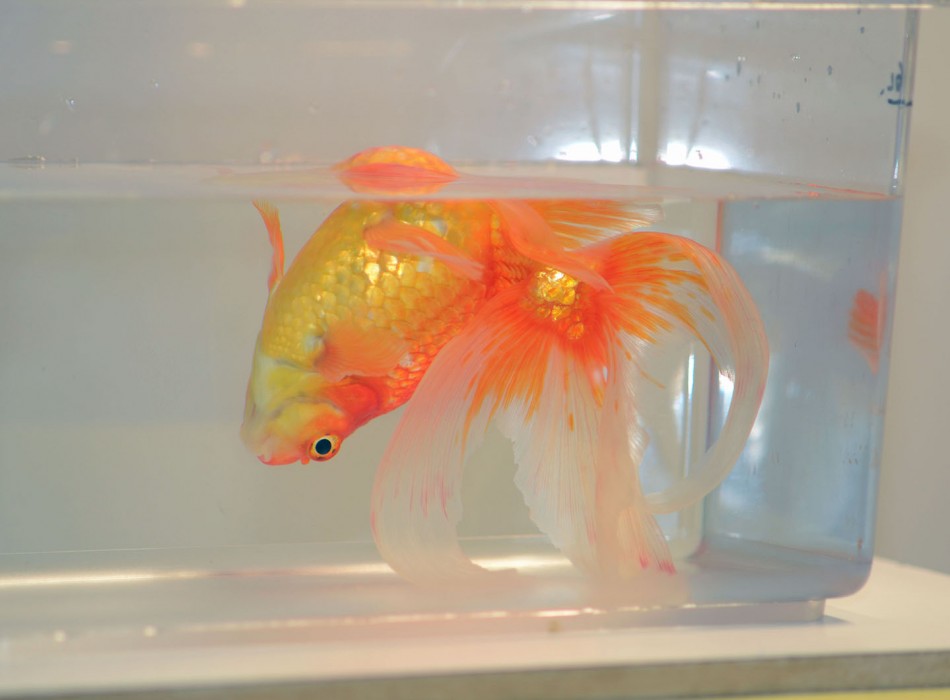
"I think I've had too much to drink.."
What sort of things do fish owners usually call you about?
It varies quite a lot, and also by species. For example, twenty years ago keeping koi was quite popular, and they often had on-going issues with various diseases, particularly ones that cause ulcerations and sores. In the mid 1990s a serious lethal virus appeared and would kill almost 100% of the koi within a couple of weeks, especially in the peak of summer. That changed people’s attitudes about security and hygiene, and hobbyists stopped treating them quite in the same casual manner they used to. Another common example of my cases would be goldfish, which typically have a lot of buoyancy problems where they either float to the top, or sink to the bottom.
"It's a matter of trying to use a sensible medical approach to solving a health problem that's potentially harmful to the animal."
William Wildgoose, A new breed of vet
Sometimes it’s tumours; these may start off as little lumps, and people may think they’re parasites, and so pet shops give them treatments to deal with parasites. Obviously, the fish don’t get better and some eventually come to me. I also tend to see the difficult cases that don’t respond particularly well to these over-the-counter treatments, and those are often more interesting and more challenging cases.
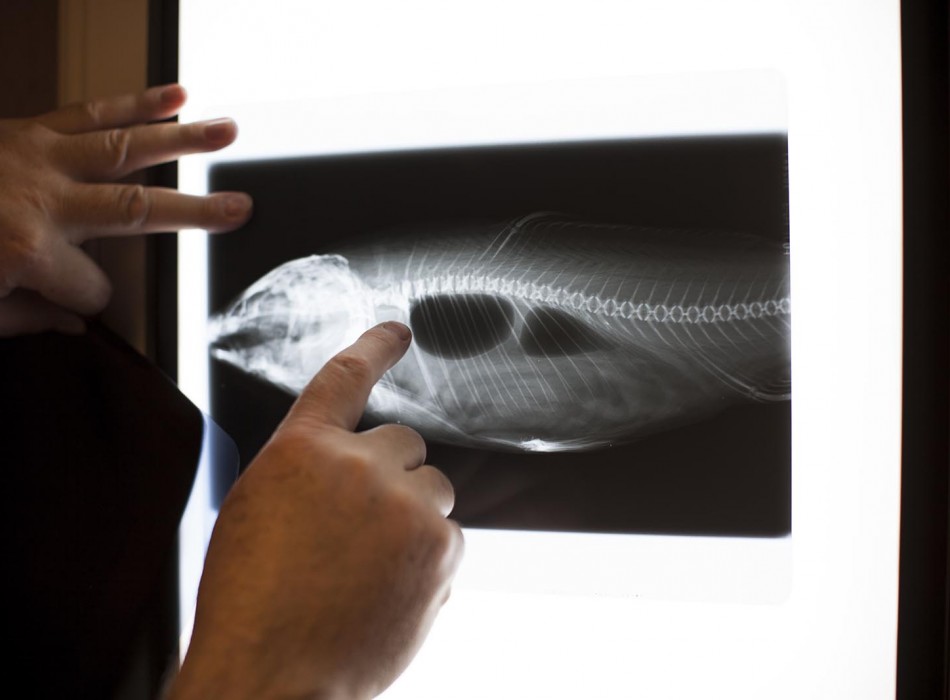
"And if you look closely, you'll see just what it did have for lunch"
What's the most unusual procedure you've done?
Every case can be quite challenging. Removing eyes with tumours is quite unusual but often helps to save the fish’s life. I’ve also operated internally and opened up some fish successfully. Other than that there’s a limit to what you can do technically because the priority is to try to save the fish or put it out of its misery. It’s not a matter of just experimenting in any way; it’s a matter of trying to use a sensible medical approach to solving a health problem that’s potentially harmful to the animal
How much do you recommend taking out animal insurance?
It’s something that we recommend in almost every instance. I can’t think of any situation where there’s no need to consider insurance. Insurance gives us a bit more clinical freedom and gives the client more options to choose from, some of which may well require elaborate surgery. At the end of the day, we don’t want to feel too constrained because we’re trained as professionals to offer the best service possible. That can come at a price which owners may feel they don’t want to pay for, or aren’t able to pay for.
When that happens, we end up having to compromise our principles and try to seek a simpler solution, which may not be as effective, or provide the best care. Sometimes it may be a matter of having to put the animal to sleep, for the sake of not being able to finance anything more advanced.


